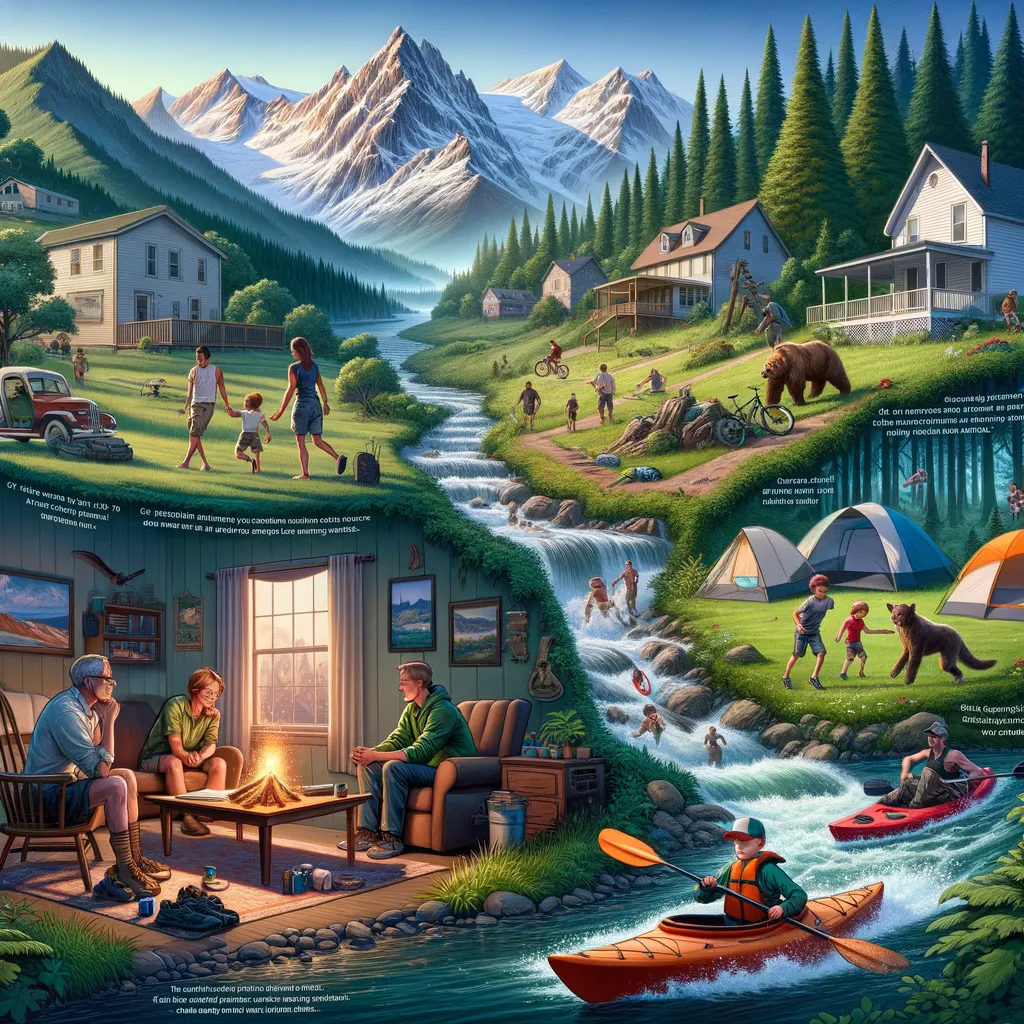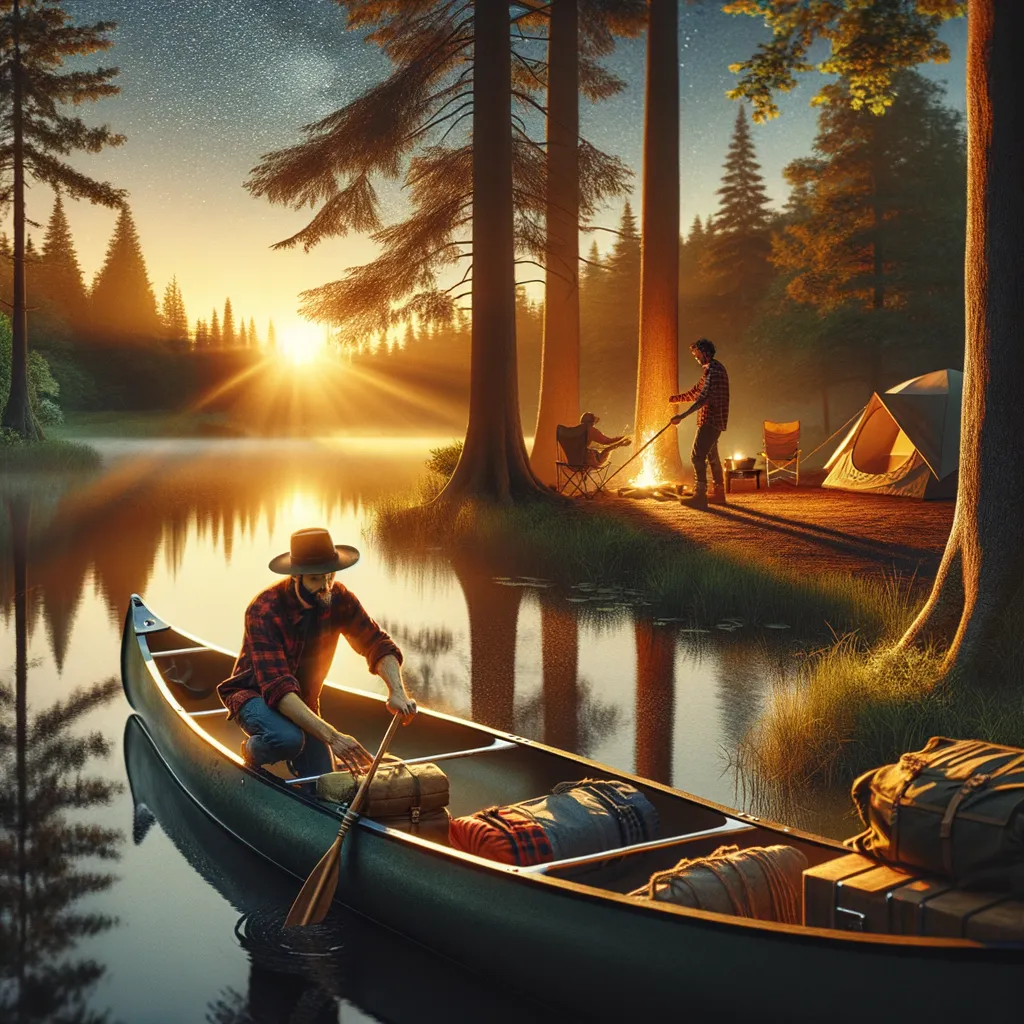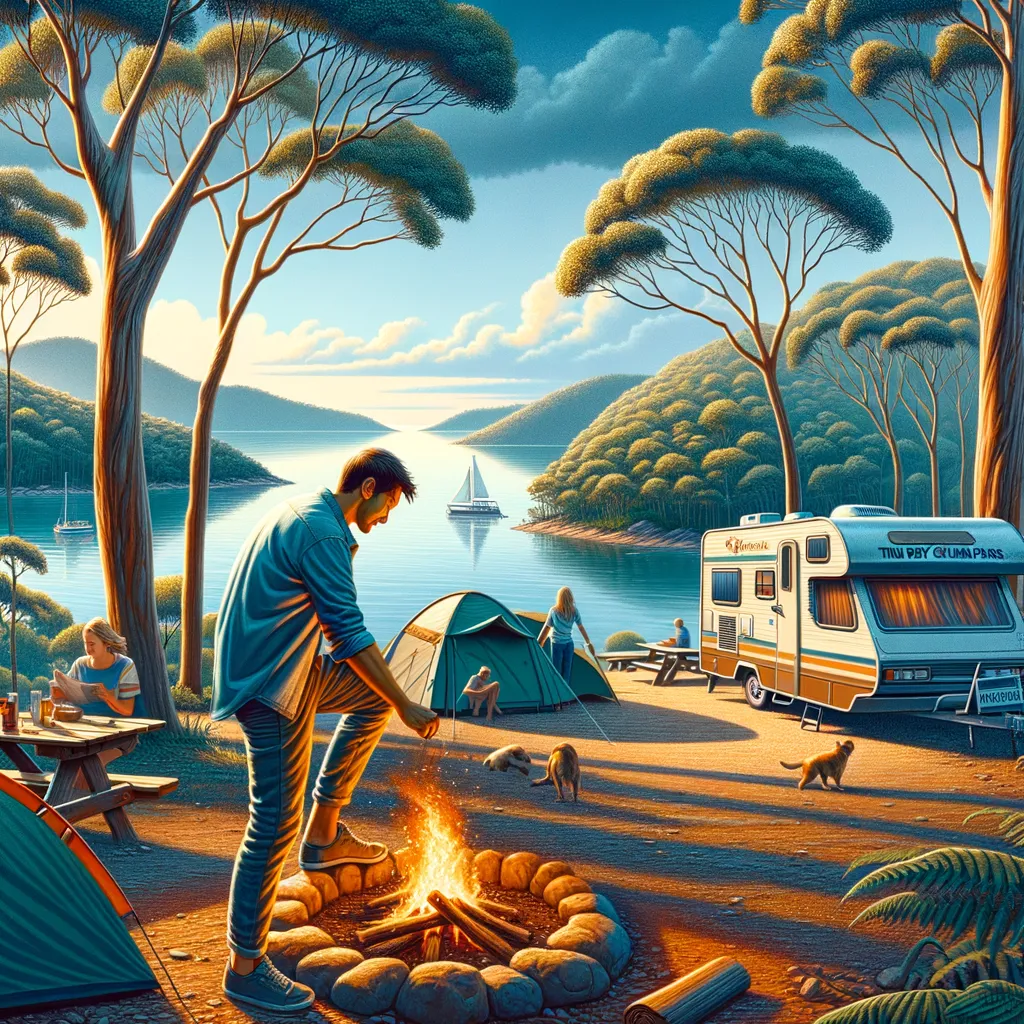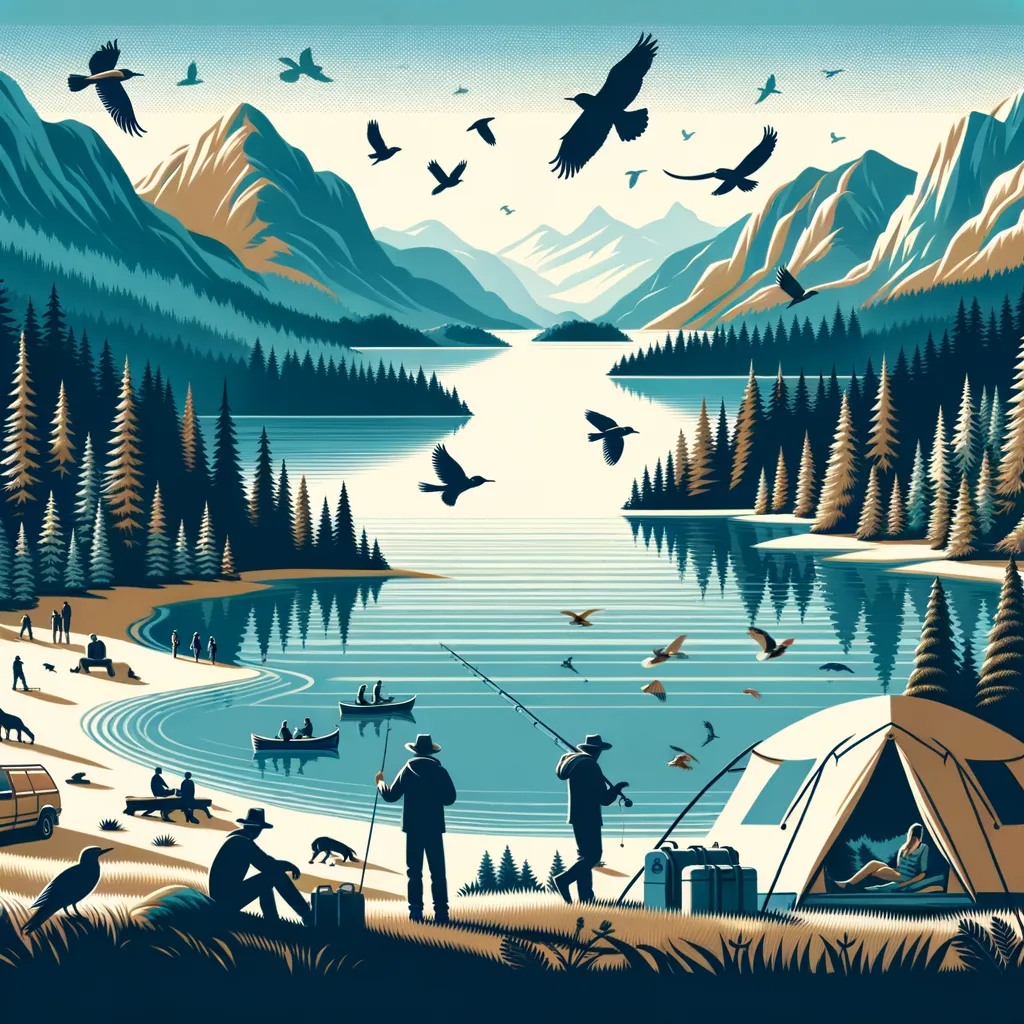Title: A Journey Through Time: The History and Evolution of National Parks
Introduction
Welcome to our comprehensive guide on the fascinating journey through the history and evolution of National Parks – serene sanctuaries that capture the essence of our planet’s diverse beauty. National Parks have long been places where nature is preserved, untouched and free from the clasp of urbanization; a place where wildlife roams freely, and breathtaking landscapes are preserved. These parks are not just areas of land set aside for preservation; they are stories, memories, and living examples of our commitment to protecting the natural world. Let’s embark on a journey to explore the origins, development, and global spread of National Parks, an adventure that celebrates our collective endeavors to conserve the very essence of Earth’s beauty for generations to come.
A Brief Overview of National Parks’ Origins
The concept of national parks can be traced back several centuries, but the idea of specifically designating areas for preservation and public enjoyment in the way we understand today started in the 19th century. The very first National Park in the world, Yellowstone, was established in the United States in 1872. This groundbreaking event marked the beginning of a global movement to protect natural and cultural resources. Yellowstone became a model, a beacon of conservation, inspiring nations around the world to adopt similar approaches to preserving their unique landscapes and wildlife.
The Expansion of National Parks Worldwide
Following the establishment of Yellowstone, the concept of National Parks began to spread globally. Canada established Banff National Park in 1885, Australia followed with the Royal National Park in 1879, and New Zealand with Tongariro National Park in 1887. This indicative spread was not just about protecting natural beauty and wildlife but also about recognizing the importance of these areas for public enjoyment and education. Each country adapted the concept to fit their unique environments and cultural significances, expanding the definition and purpose of National Parks beyond its original premise.
The Evolution of Conservation Efforts Within National Parks
Since their inception, National Parks have undergone significant evolution, both in scope and in the methods used for conservation and management. Early conservation efforts were primarily focused on the preservation of land and the protection of specific species. However, as our understanding of ecology and environmental science grew, so did the strategies for conservation. This led to a more holistic approach, integrating ecosystem management and sustainable use of resources, ensuring that National Parks remain vibrant and healthy landscapes where biodiversity can thrive.
Today, the role of National Parks extends beyond conservation. They are vital for research, education, and recreation, offering millions of visitors annually a chance to connect with nature and learn about the importance of environmental protection. The challenges faced by National Parks have also evolved, with climate change, invasive species, and increased tourism pressures necessitating innovative management and conservation strategies. Despite these challenges, the global community’s commitment to National Parks remains unwavering, recognizing their critical role in preserving the planet’s biodiversity and natural heritage.
This journey through the history and evolution of National Parks highlights not only the growth of these protected areas but also the changing attitudes towards conservation and the environment. From the establishment of Yellowstone in 1872 to the global network of protected areas we see today, National Parks represent our ongoing commitment to preserving the natural world. They remind us of the importance of conservation, offering a glimpse into the unspoiled beauty of nature, and inspire us to continue our efforts in protecting our planet for future generations.
As we delve deeper into the history, strategies, and challenges of National Parks, we’ll explore the stories of individual parks across the globe, the innovative conservation efforts underway, and the future of these majestic natural reserves. Stay tuned as we continue our exploration of National Parks, a testament to our enduring respect and love for the natural world.

A Journey Through Time: The History and Evolution of National Parks
Welcome and Introduction to National Parks
Welcome, dear parents and curious minds, to our enriching guide on “A Journey Through Time: The History and Evolution of National Parks”. Embrace this opportunity to dive into the wondrous world of National Parks, where the majesty of nature meets the guardianship of humanity. National Parks serve as the perfect classroom not only for learning about environmental conservation but also for experiencing unparalleled adventures with your family. Embarking on this journey, we invite you to uncover the roots, growth, and future of these natural habitats and their pivotal role in our global ecosystem.
Understanding the Origins of National Parks
The inception of National Parks began as a groundbreaking idea in the 19th century, with Yellowstone National Park in the United States pioneering this initiative in 1872. This landmark decision sparked a global movement towards environmental conservation, leading to the establishment of similar sanctuaries worldwide. Discover the early convictions behind these acts of preservation and how they have laid the foundation for the flourishing global network of National Parks we cherish today.
Exploring the Global Spread and Significance of National Parks
As the concept of National Parks took flight, countries around the globe began to recognize the imperative of safeguarding their natural wonders. From Canada’s Banff National Park established in 1885 to Australia’s Royal National Park in 1879, and New Zealand’s Tongariro National Park in 1887, the global tapestry of National Parks showcases the diverse beauty and ecological importance of these areas. Each park tells a unique story, emphasizing the universal need to preserve our planet for the enjoyment and education of all.
5 Vital Tips for Parents Embarking on National Park Adventures
- Preparation is Key: Before visiting any National Park, research and plan your trip. Understand the park’s guidelines, weather conditions, and terrain to ensure your family is well-prepared for the adventure that lies ahead.
- Education through Exploration: National Parks offer a myriad of learning opportunities for children. Encourage them to engage with interactive exhibits, participate in Ranger-led programs, or complete a Junior Ranger badge to enhance their understanding and appreciation of the natural world.
- Respect Nature’s Boundaries: Teach your children the importance of preserving the pristine conditions of National Parks. Adhering to designated paths, not disturbing wildlife, and leaving no trace of your visit helps ensure these treasures remain untouched for future generations.
- Safety First: Safety should always be a top priority. Equip your family with essential supplies such as water, snacks, first aid kits, and appropriate attire. Familiarize yourself with the park’s safety guidelines and emergency procedures to guard against any unforeseen circumstances.
- Embrace the Beauty of Disconnecting: National Parks offer a chance to disconnect from digital devices and reconnect with nature and each other. Encourage your family to savor these moments, creating lasting memories in the embrace of the Earth’s natural beauty.
The Future and Ongoing Commitment to National Parks
Today, National Parks not only stand as bastions of biodiversity and natural heritage but also as symbols of our collective commitment to the environment’s future. They face numerous challenges, from climate change to increased visitor numbers, yet continue to evolve with innovative conservation strategies. These efforts ensure National Parks remain vibrant ecosystems, where nature thrives and families like yours can enjoy the unspoiled beauty of our planet.
This comprehensive journey through the history and evolution of National Parks emphasizes our changing relationship with nature and underscores the importance of these natural sanctuaries. As we explore the stories of individual parks, conservation efforts, and their future prospects, let us remember that our support and respect for National Parks are crucial in preserving the beauty and diversity of our planet for generations to come. Let’s pledge to protect these precious resources, ensuring they continue to inspire, educate, and offer solace well into the future.
Embarking on a National Park adventure with your family is not just a holiday; it’s an investment in learning, experiencing, and contributing to the preservation of our world’s natural wonders. Let these parks be a playground for imagination, exploration, and the creation of enduring memories with your loved ones. Remember, every visit to a National Park is a step towards safeguarding the earth’s breathtaking landscapes for our children and the many generations that will follow.
Disclaimer
The articles available via our website provide general information only and we strongly urge readers to exercise caution and conduct their own thorough research and fact-checking. The information presented should not be taken as absolute truth, and, to the maximum extent permitted by law, we will not be held liable for any inaccuracies or errors in the content. It is essential for individuals to independently verify and validate the information before making any decisions or taking any actions based on the articles.



